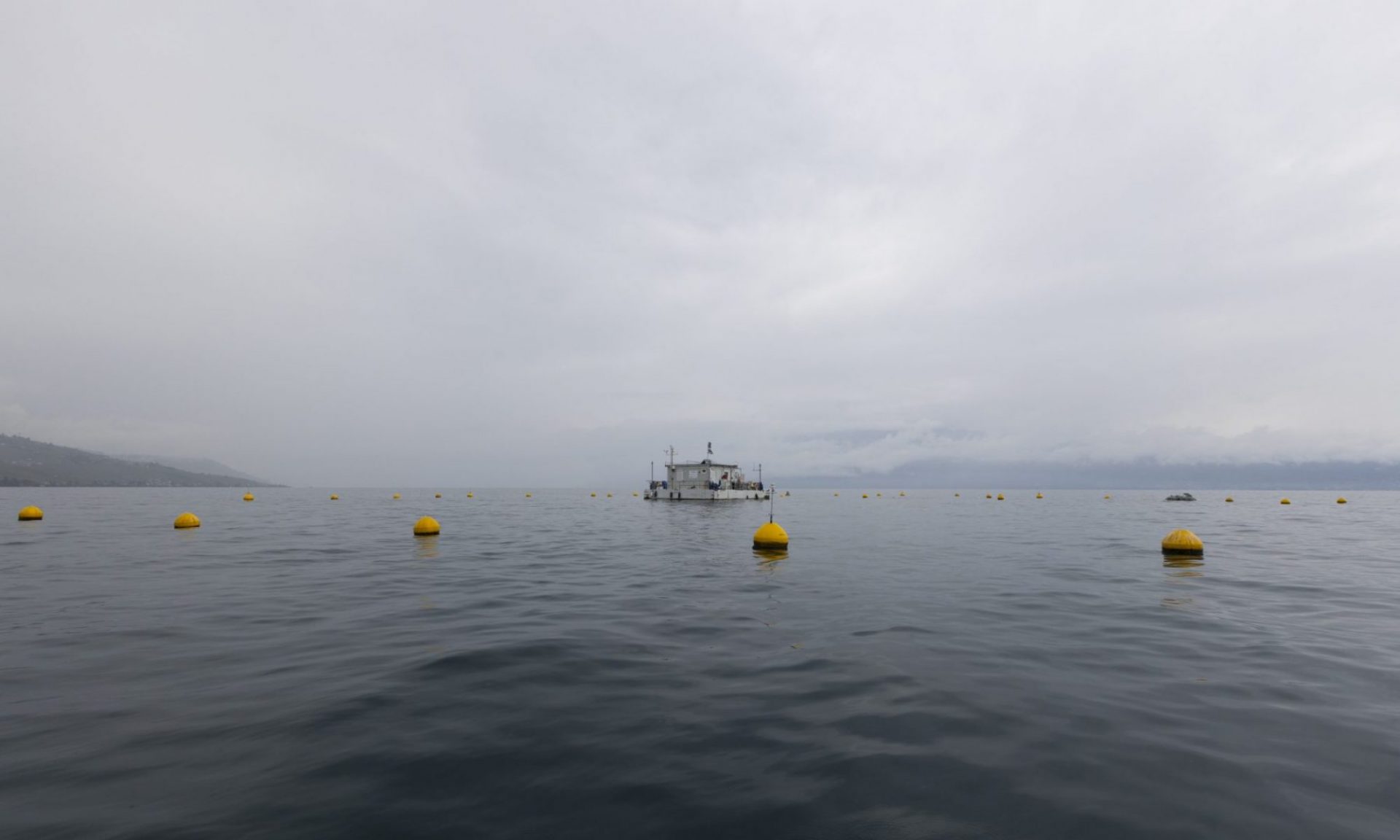Our new topics for prom 2025-2026 and beyond are now released, fresh out from our team research : Willing to fool around on the LExplore platform, for a 24H cycle or more? Want to breathe the fresh air of mountain lakes? Want to connect with management? Instead, willing to explore the field of climate change communication in the media? There might be something for you…
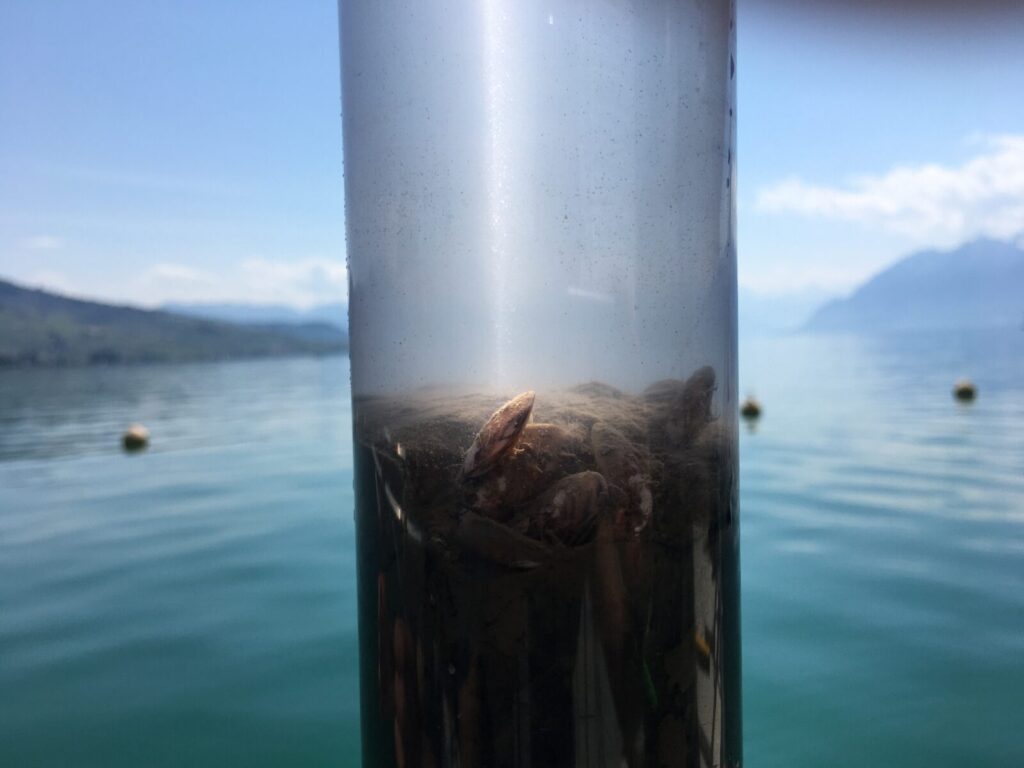
1. How long until quagga mussels control the phosphorous concentration of Lake Geneva? (Contact: Perga)
Type of research : Field measurements, lab analysis, application of model
Outline: Quagga mussels invaded Lake Geneva in 2016, and have been spreading and developing down to the lake bottom since then. Quagga mussels are filter-feeding bivalves, pumping and filtering huge amounts of water every day. The settlement and development of quagga mussels in Lake Geneva is expected to generate massive changes in lake water transparency, nutrient cycling, oxygen consumption at depth and biodiversity.
By filtering organic particles from lake water and returning phosphorus with their excretions, mussels dramatically alter the natural rates at which phosphorus is exchanged between lake water and sediments. A previous study in Lake Michigan (Li et al., 2021) showed that mussels were not only removing phosphorus from the water 10 times faster than 2 decades ago, but were also resupplying the water column with 8 times the amount of phosphorus. That “internal loading” effectively decouples the dynamics of phosphorus from watershed inputs, leaving the system open to poorly predictable fluctuations when mussel populations increase or decrease. In Lake Geneva, the invasion is still in its early stages, but it is doomed to develop over the years. Using the model developed for Lake Michigan, and adapting it to Lake Geneva, the student will assess the current and expected effects of quagga mussels on the lake’s P concentrations.
contact: marie-elodie.perga@unil.ch

2. Are Quagga mussels driving a microplastics benthic shunt? (Contact: Perga)
Type of research : Field measurements, lab analysis, application of model
Outline: Quagga mussels invaded Lake Geneva in 2016, and have been spreading and developing down to the lake bottom since then. because of their huge filtering capacities, quagga mussels are amplifying the flux of matter from the open water column to the sediment, in a process referred as to the “benthic shunt”. Normally approched for organic matter, the benthic shunt might also act for some microplastics, since quagga mussels are able to ingest fibers and reject them as pseudofeces.
Herein, the student will test for the microplastics benthic shunt hypothesis, by sampling and analysing microplastics in mussels, water and sediment, and building up a simple flux model to quantify how much the quagga mussels amplified the flux of microplastics to the sediment in lake Geneva.

3. Quantifying ecosystem services provided by lakes in Switzerland. (Contact: Perga)
Type of research : GIS analysis, economical dat collection, surveys
One-third of the Swiss population lives within one kilometre of a lake, and at least as many directly benefit from the services lakes provide. Those include drinking water, food and energy provision, flood and drought regulations, support for local tourism and leisure economies and biodiversity. Additionally, lakes are viewed as levers for future climate adaptation and mitigation. Ultimately, the sustainability of lake services and the management trade-offs involved are challenged by how they respond to ever-changing environmental conditions, some of which can be reasonably anticipated (such as climate change or reduced nutrient concentrations), others appearing more as a surprise (such as the quagga mussel invasion). But how much is really at stake?
While intuitively the role of lakes as service providers is quite clear in Switzerland, those have never been quantified, in terms of how many people benefit from those services and how much money is generated or saved thgouh such services.
Herein the student will rely on economical data sources and GIS ressources to provide a first estimate of the sociological, cultural, esthetic and economical values of lakes in Switzerland.

4. Surface waves on LeXPLORE (Contact: Bouffard)
Surface gravity waves are ubiquitous process in lakes and oceans. They results from wind disturbing the water surface while gravity acts as restoring force. The contribution of surface waves to the energy transfer into lakes is often neglected in lake research. This project aims at (i) parameterizibg the surface waves and (ii) evaluating how they modulate the wind energy transfer into the surface layer. This work will benefit from the LéXPLORE platform (https://lexplore.info). LéXPLORE is a 10 m by 10 m pontoon equipped with high-tech instrumentation and installed on Lake Leman. This infrastructure will provides continuous measurements, days and nights for all weather conditions
Your task:
- Participate to the field measurements on the LéXPLORE platform
- Provide a literature review of surfaces waves in lakes and wind energy transfer in the surface layer
- Quantify the seasonal dynamics surfaces waves in Lake Geneva
- Validate surface waves model for Lake Geneva
Contact: damien.bouffard@unil.ch
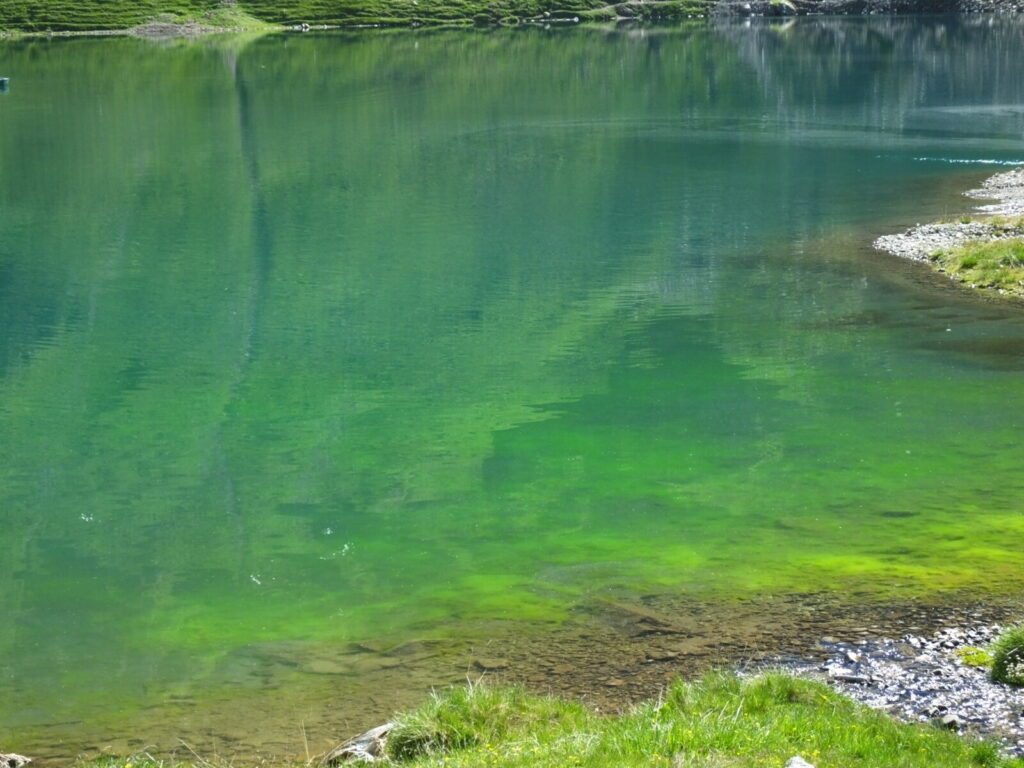
5. Are green algae proliferating in alpine lakes ? (Contact : Perga)
Type of research : field work, remote sensing, imaging, data analyses (possibly development of an App for citizen Science)
Recently, some oligotrophic lakes in the World have seen massive littoral blooms of green algae. Some alpine lake managers are now also observing occurrences of littoral blooms of the green algae Spyrogira. Yet, the absence of data and difficulty in getting a good quantification of the dynamics of these littoral blooms do not allow to assert this observation. Here, the researcher is expected to combine imaging is camera traps and a spatial survey of alpine lakes in summer to provide a first quantification of the phenomenon in the French and Swiss Alps.
contact: marie-elodie.perga@unil.ch
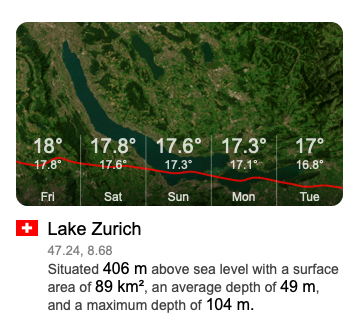
6. 3D lake hydrodynamic models (Contact : Bouffard)
Our research utilize state-of-the-art 3D hydrodynamic models (refer to https://meteolakes.ch/ or https://www.alplakes.eawag.ch for more information) to delve into the complexities of lake systems. As a master student, your primary responsibility will involve developing and refining 3D hydrodynamic models to simulate and analyse physical processes within lakes.
The overarching goal of this research is to gain a comprehensive understanding of the dynamics of horizontal structures within lakes and quantify their impact. you will employ the output from these models to evaluate and assess horizontal patterns in lakes. The project emphasizes open science, and operational model output will be made openly accessible through a web-based data platform
Your task
- Setting up hydrodynamic models
- Improving the post-processing of model output
- Investigate physical processes in lakes
Contact: damien.bouffard@unil.ch
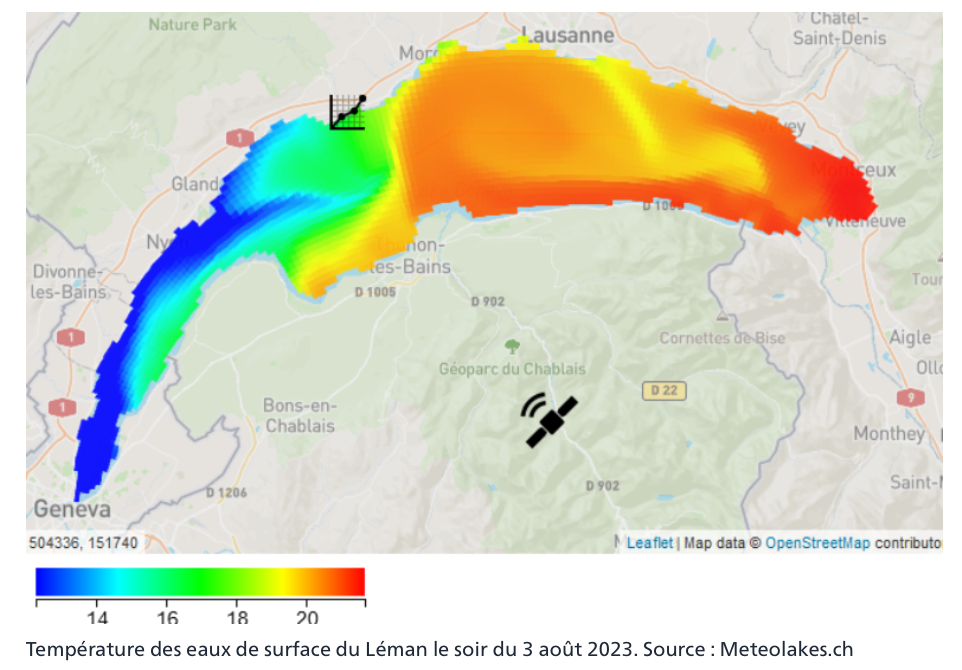
7.Detecting upwelling in lakes
Spring upwelling events constitute a prominent phenomenon within lakes during the springtime https://www.eawag.ch/en/info/portal/news/news-archive/archive-detail/lake-geneva-plummets-to-8-degrees-from-23/. These events result from the interaction of wind-driven forces with the presence of a shallow thermally stratified lake environment. Such upwellings have profound impact on lake ecosystem as they lift up to the lake’s surface nutrient-rich waters, potentially fostering the proliferation of algae and reversely facilitate the transportation of well-oxygenated surface waters to greater depths. Yet, we still lack detailed study on upwelling in lakes. We are seeking a highly motivated master student to evaluate the spatial and temporal distribution of upwelling in Swiss lakes. For this, the master student will use existing three-dimensional hydrodynamic models (https://www.alplakes.eawag.ch )
Your task:
- Literature review of existing technics to detect upwelling in limnology and oceanography
- Developing a python-based tool to detect upwelling in 12 Alpine lakes based on the output from 3D hydrodynamic models. The ultimate goal is to implement the developed tool in our operational lake model
- Quantify the characteristics of the upwellings in each lake (timing, frequency, extent etc)
- Investigate the external drivers responsible for the upwellings
Contact: damien.bouffard@unil.ch
